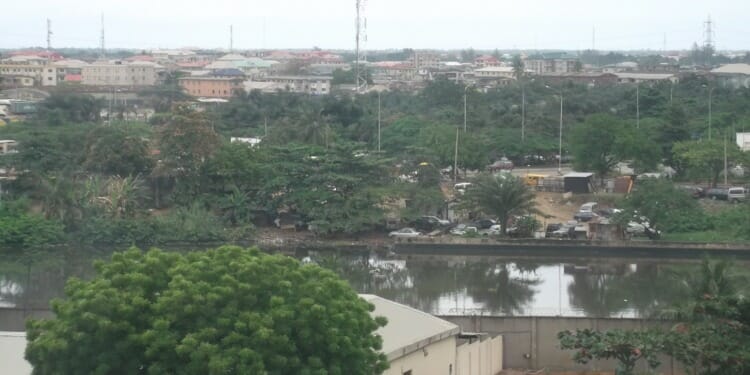Nigeria’s Special Anti-Robbery Squad (SARS) has used methods of torture, rape, and murder, to extract information from suspects. On 4 October a video of SARS officers dragging two men from a hotel and shooting one of them, went viral. This sparked protests across the whole of Nigeria and beyond. The government shut SARS down on 11 October 2020 but being the fifth time police reform had been pledged since 2015, #EndSars protests continued. On 20 October 2020, the Nigerian army violently suppressed a peaceful #EndSars protest at the Lekki toll gate. The army killed at least 12 people. Nigerian authorities tried to cover up the protests by freezing protest organiser’s bank accounts and fining news agencies who disseminated videos and news.
A year on from the Lekki toll shooting, 20 October 2021, peaceful memorial rallies were held. Olumide Akpata, the Nigerian Bar Association’s president, has said that “it is regrettable that on the occasion of the anniversary of such a symbolic moment in our nation’s history, we do not appear to have learnt our lessons as symbolised by the arrest and detention of peaceful protesters”.
But the protests were about much more than SARS, it has broadened into young people questioning and protesting against the government and its authority to rule over 213 million people.
Nigeria is facing ungovernability as a result of economic and security issues
Between January and September of this year, 8,000 people were directly killed in conflicts in Nigeria. Thousands more have died as an indirect consequence of the fighting such as hunger and disease. Nigeria is facing their biggest crisis in decades and is moving closer to ungovernability. Whilst Nigeria has a history of corruption and instability, it is only now with the rise of crime, jihadism, and political violence that the country is facing ungovernability.
Nigeria gained independence from British rule in 1960. Since then, the country has seen a lot of instability, the most major incident being the civil war of 1967-70. The south-eastern region republic of Biafra attempted to break away from the country before it was dissolved, costing the country one million lives. Nigeria’s economy is the largest in Africa, generating a quarter of Africa’s GDP and has the largest population of approximately 213 million. However, in May 2021, it was reported that more than half of Nigerians are underemployed or unemployed. According to the World bank, the number of Nigerians living on less than the equivalent of $1.90 per day could rise to 100m by 2023.
Related Articles: #EndSARS: The Truth Behind the Hashtag |Reversing Education Inequalities in Lagos, Nigeria
Whilst the pandemic is partly to blame for this economic crisis, the country has been facing problems since 2015 when oil prices began to fall. Oil accounts for 80% of export earnings and about half of government revenues.
The government’s solution to this problem, to restrict imports (including food) to prop up the currency, have led to food-price inflation of 23%. It is no surprise that the percentage of people who want to emigrate is rapidly rising. Between 2014 and 2018, the percentage who want to emigrate rose from 36 to 52%.
Bandits and criminal gangs are on the rise
Potentially as a result of these economic issues, recently levels of jihadism, organised crime and political violence have dangerously increased. Cheta Nwanze of SBM Intelligence says that “security [in Nigeria] is at its worst since the civil war”. In the north-east, a jihadist insurgency is spreading, rebellion and protesting is on the rise in the south-east and there is an ever-growing presence of kidnappers, warlords and cattle rustlers. Citizens, rich and poor, are living in fear for their safety.
Just today, officials have reported that Gunmen attacked a prison in south-west Nigeria, freeing approximately 575 inmates. This is the third jailbreak in Nigeria this year and is just one example of the government’s failure to contain and find the source of rising violence.
Nigeria: heavily armed men free inmates during attack on prison https://t.co/ERMfhoPVCA
— Guardian news (@guardiannews) October 23, 2021
In theory, Nigeria’s army and police force should be powerful enough to contain the violence. However, some soldiers only exist on the payroll and the army is thinly spread as it is needed across the country. Police are poorly paid and have resorted to robbing the public. The incident at the Lekki toll gate was also not an isolated incident; there have been many cases of murder and torture being carried out by both soldiers and police. This behaviour by those who are meant to be protecting citizens from similar offences, has led to even wider-spread fears and as a result, many young Nigerians are resorting to yet more violence and taking part in extremist uprisings.
What are the wider implications of these issues?
The wider implications of these levels of instability in Nigeria are huge, not least because the country is Africa’s largest economy, whose failures are bringing significant issues to the entire continent.
If the Nigerian government could make its own forces abide by the law, strengthen its police through training, adequate funding and hiring enough numbers, and adopt as a major policy goal a radical restructuring of the economy which the vast majority of Nigerians is calling for – practically a consensus request, it may yet be possible to prevent ungovernability. However, given the government’s track record for reform, this seems highly unlikely.
Editor’s Note: The opinions expressed here by Impakter.com columnists are their own, not those of Impakter.com. — In the Featured Photo: Man carries a United Nations folder. Featured Photo credit: Elgabarty2002










